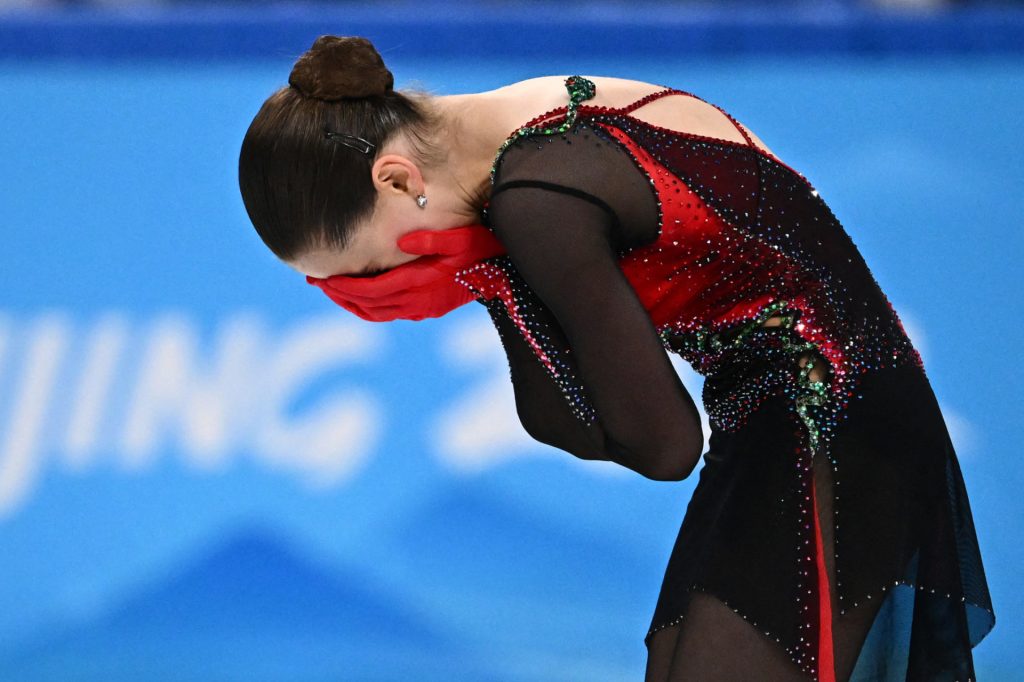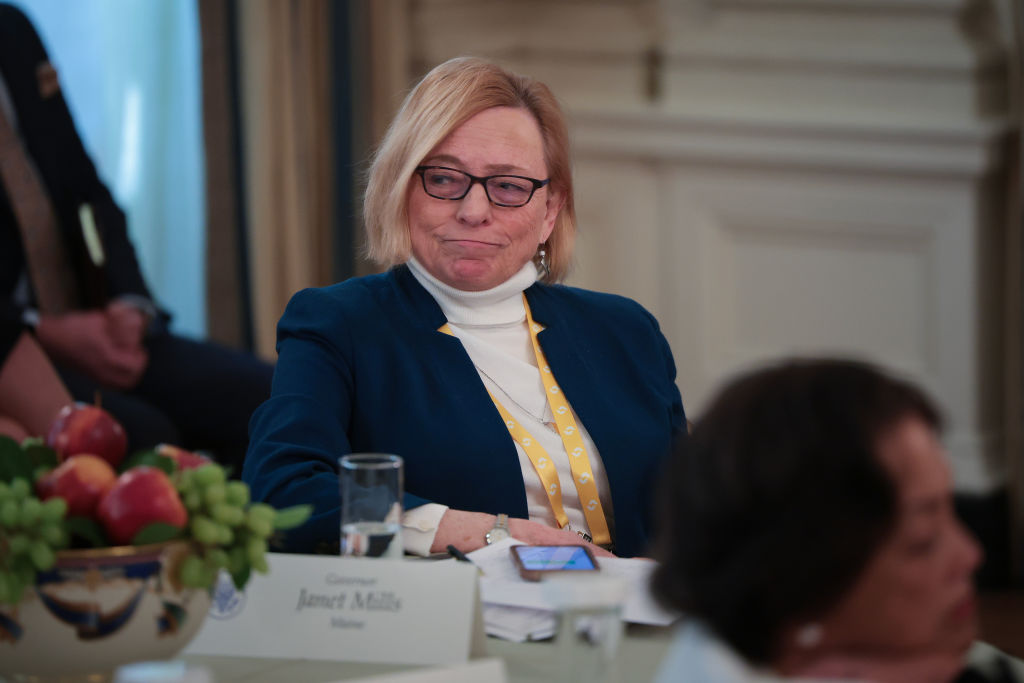It was only fitting that China’s hopes of putting on the perfect Olympics should ultimately be dashed by its new partner in crime, Russia. The two countries started the Beijing Winter Olympics by announcing a “no-limits” partnership against the West, and ended them with one of the biggest sporting scandals in recent Olympic history.
If the 2008 Beijing Summer Olympics were China’s coming out party, then the 2022 Winter games would tell the world that the rising authoritarian regime was stronger — and cockier — than ever. The opening ceremony jabbed at those critical of China’s human rights abuses by highlighting China’s diversity and allowing a Uighur to carry the Olympic torch. The games featured three separate Olympic parks accessible by high-speed rail, strict quarantine measures to try to prove the CCP had Covid under control and a shockingly high number of American athletes and coaches competing on behalf of China.
China’s best laid plans quickly crumbled. The world was critical of a curious speed skating call that handed China a gold medal. The US men’s hockey squad routed China’s mostly-foreign super team 8-0. American defector Eileen Gu’s dominance in freestyle skiing was matched by Americans Chloe Kim in the halfpipe and Nathan Chen in men’s figure skating. Another defector to China, Zhu Yi, gave an embarrassing performance in the team figure skating event. Athletes shared horror stories from China’s Covid quarantine facilities. Oh, and the Big Air venue’s setting at an old steel mill was roundly mocked as a dystopian hell-scape.
Still, nothing could prepare viewers for the shameful Russian figure skating scandal that culminated in Thursday’s dramatic free skate. Kamila Valieva, a fifteen-year-old phenom competing for the Russian Olympic Committee was the favorite to win gold after becoming the first woman to land a quadruple jump at the Olympics during last week’s team event.
The International Olympics Committee announced after the team event that they would delay the medal ceremony due to unspecified “legal issues”. Reports later confirmed that Valieva tested positive for three substances meant to improve heart function, including one that is banned for athletes. Traditionally under figure skating rules, Valieva would be banned from competition, and the ROC’s gold medal would be revoked. Instead, in a shock decision, the IOC said that Valieva would be allowed to skate in the women’s single event but would reserve their right to disqualify her after an investigation.
The IOC claimed they didn’t want to cause irreparable damage to this young woman by removing her from the competition. Allowing her to skate actually made it worse. Valieva crumbled under the immense pressure, failing most of her jumps during the free skate, bursting into tears, and finishing fourth in the women’s singles event. Instead of being received with empathy and support, Valieva’s coach, Eteri Tutnerize, berated her for her mistakes as soon as she stepped off the ice.
The other two Russian skaters, who were in gold and silver medal position, had similar meltdowns. Alexandra Trusova, the silver medalist, threw a tantrum over not winning the competition, said she would never skate again and nearly refused to participate in the medal ceremony. The gold medalist, Anna Shcherbakova, looked around lost and teary-eyed for nearly five minutes as all of her coaches were too distracted with Valieva to congratulate her. She later said she felt “emptiness” at winning.
The experience was disorienting and depressing for onlookers, as well. Former Olympic skaters and NBC commentators Tara Lipinski and Johnny Weir were angry that Valieva was allowed to compete, but placed most of the blame on her coaches for not making sure she delivered a clean drug test. Lipinski, who won her own figure skating gold medal at the age of fifteen, got emotional as she talked about how important it is for young skaters to be surrounded by good role models. Tutnerize, whose skating program is known for chewing up and spitting out young skaters, is certainly not that.
The only good that came from Valieva’s fourth-place finish was that the winners were allowed their medal ceremony, as well as the certainty that their placements couldn’t change months later after the doping investigation.
The figure skating scandal might allow China a distraction from questions about its human rights abuses, but it is still a giant stain on Beijing’s hoped-for international triumph. Chinese officials laughably claimed during a press conference that they have “zero-tolerance” for doping, which doesn’t explain why they allowed the IOC to tarnish their games with such a weak response to Valieva’s positive drug test.
China should never have been allowed to host the games, and Russian nationals should have never been allowed to compete under the ROC banner. Sad as it may be for Valieva, this was an important reminder of the deep corruption driving international sport and the countries vying for hegemony over the West.

























